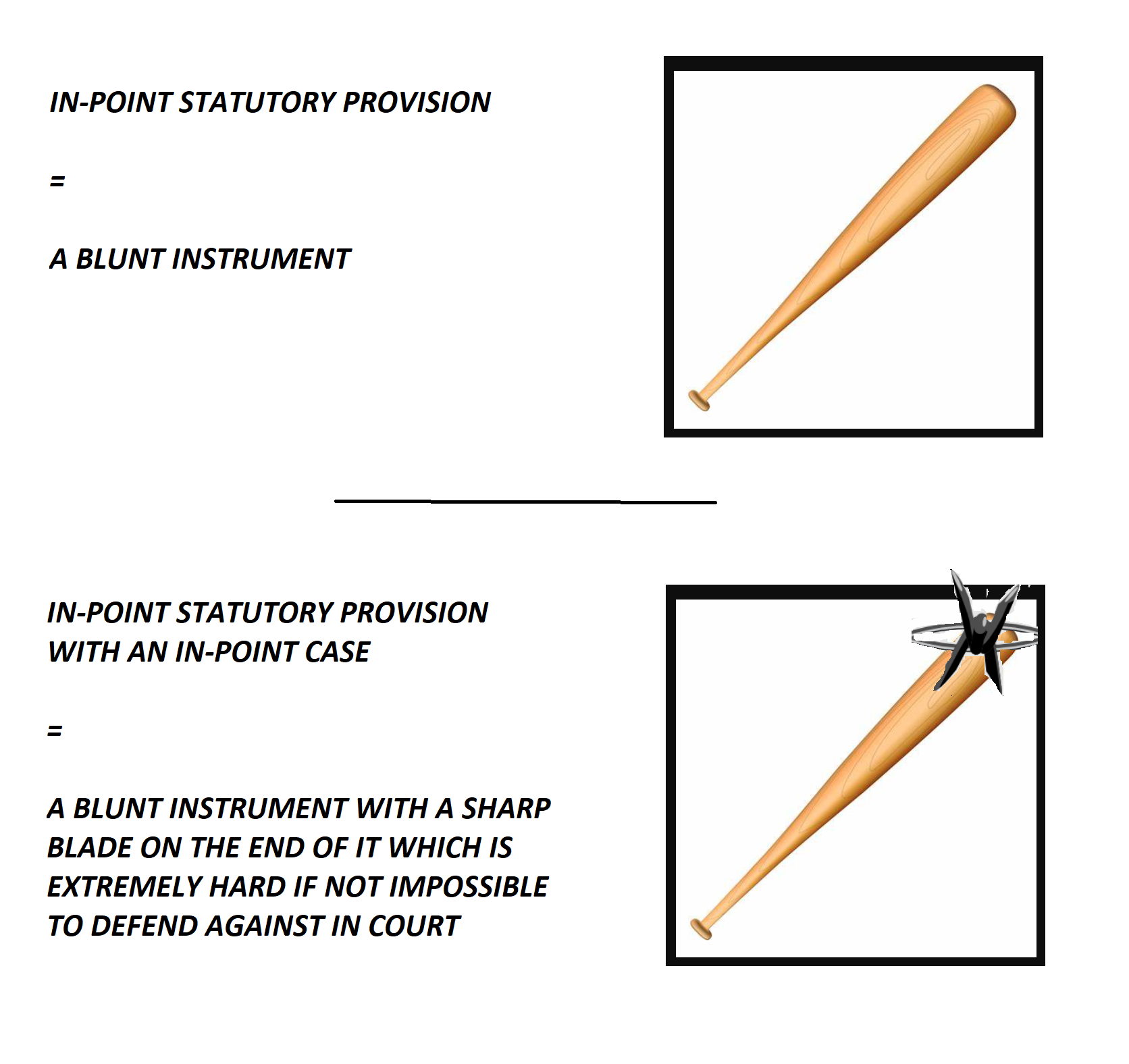Furniss v Dawson, 1984, AC 474
Citation:Furniss v Dawson, 1984, AC 474
Rule of thumb:How do you make an extremely strong legal argument? Where there is in-point statutory supported by an in-point case this will be almost certain to succeed. Where there is an in-point principle from the common law supported by clear & in-point case-law this is highly likely to succeed.
Rule of thumb:If there are transactions entered into a business which make no commercial sense except to reduce tax, are they viable? No, these transactions are to be ignored for the purposes of tax. Transactions which have no commercial value except to reduce tax are invalid.
Background facts:
The basic facts were that a person deliberately entered into artificial loss-making transactions which had no business purpose whatsoever so that they could reduce their tax bill.
Judgment:
The Court affirmed that where an individual does this then these transactions are deemed null and deemed not to have taken place when calculating tax owed, especially if there is a statutory provision and a previous in-point case affirming this.

Ratio-decidendi:
‘The limits within which this principle is to operate remain to be probed and determined judicially. Difficult though the task may be for Judges, it is one which is beyond the power of the blunt instrument of legislation. Whatever a statute may provide, it is to be interpreted and applied by the Courts: and ultimately it will prove to be in this area of judge-made law that our elusive journey’s end will be found’. Lord Scarman.
‘The effect of his [Oliver L. J.'s] judgment was to change Lord Diplock's formulation from "a pre-ordained series of transactions ... into which there are inserted steps that have no commercial purpose apart from the avoidance of a liability to tax" to "a pre-ordained series of transactions ... into which there are inserted steps that have no enduring legal consequences." That would confine the Ramsay principle to so-called self-cancelling transactions’, Lord Brightman
Warning: This is not professional legal advice. This is not professional legal education advice. Please obtain professional guidance before embarking on any legal course of action. This is just an interpretation of a Judgment by persons of legal insight & varying levels of legal specialism, experience & expertise. Please read the Judgment yourself and form your own interpretation of it with professional assistance.

